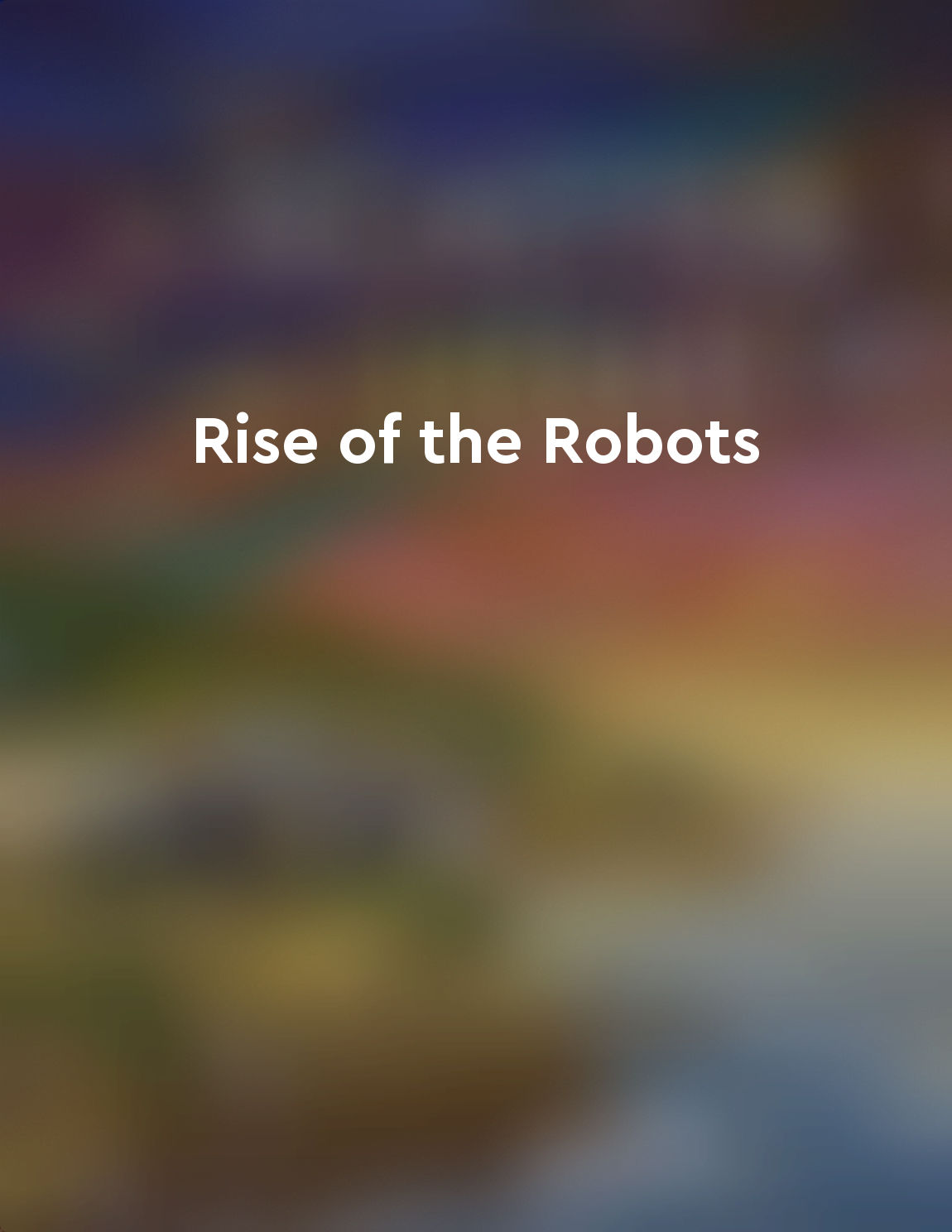Inequality could worsen with automation from "summary" of Automation and Utopia by John Danaher
One of the key concerns surrounding automation is the potential for exacerbating existing social inequalities. As technology continues to advance, there is a growing fear that certain groups of people will be left behind while others reap the benefits of automation. This fear is not unfounded, as previous waves of technological innovation have often led to increased inequality. One of the primary reasons for this is the uneven distribution of the benefits of automation. While automation has the potential to increase productivity and efficiency, those benefits are not always shared equitably. In many cases, the gains from automation have gone to those who own the technology or have the skills to work with it, leaving others struggling to find meaningful employment. Furthermore, automation has the potential to displace certain types of jobs, particularly those that are routine or repetitive in nature. This can have a disproportionate impact on low-skilled workers, who may find themselves replaced by machines that can perform the same tasks more efficiently and at a lower cost. As a result, these workers may find themselves out of work or forced to accept lower-paying, less secure jobs. In addition to job displacement, automation can also lead to a concentration of wealth and power in the hands of a few individuals or corporations. As automation becomes more prevalent, those who control the means of production stand to benefit the most, while others are left to compete for an increasingly limited share of the economic pie. This can further widen the gap between the haves and the have-nots, leading to greater social unrest and instability.- While automation has the potential to bring about many positive changes, it also poses significant risks in terms of exacerbating inequality. Without careful planning and consideration, the benefits of automation may not be shared equitably, leading to a future where the few prosper at the expense of the many. It is crucial that policymakers and stakeholders take these concerns into account as they navigate the challenges and opportunities presented by automation in the coming years.
Similar Posts
Health disparities are evident
Health disparities are evident when looking at the differences in health outcomes between various groups within a society. Thes...
Education is key
Education is the key to success in today's rapidly changing world. The ability to adapt, learn, and think critically is more va...
Striking a balance in automation is a complex task
The task of striking a balance in automation is a multifaceted and intricate one. It requires careful consideration of a multit...
The future of automation is uncertain
Automation, the process of replacing human labor with machines or algorithms, has been a topic of debate and speculation for ma...
Ethical considerations should guide automation design
The design of automated systems should be guided by ethical considerations. This is a fundamental principle that must be adhere...
Collaboration between humans and machines is key
The relationship between humans and machines is a complex and evolving one. As automation technologies continue to advance, the...
Ethical considerations should guide automation design
The design of automated systems should be guided by ethical considerations. This is a fundamental principle that must be adhere...

Wealth inequality could widen as automation reduces the need for human labor
As automation continues to advance, there is a growing concern that the gap between the wealthy and the rest of society could w...

They are transforming industries and revolutionizing the workforce
The impact of automation and artificial intelligence on industries and the workforce is profound. As these technologies continu...

